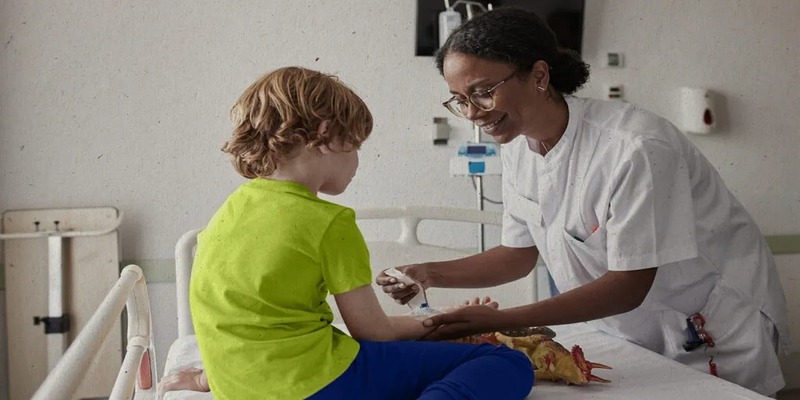
Viral Meningitis—Symptoms, Causes, And Treatments
Jan 09, 2023
Meningitis is an infection and inflammation of the brain and spinal cord fluid and membranes. Meninges are these linings. Meningitis can cause head, body, and neck discomfort due to the brain and spinal cord inflammation.
Meningitis symptoms may disappear after a few weeks. Others can be lethal without antibiotics. Meningitis symptoms should be checked regularly. Prompt treatment can prevent bacterial meningitis complications.
Symptoms

Symptoms of early meningitis may resemble those of the flu. It might take several hours or a few days for symptoms to appear. In adults and children over the age of 2, these are some of the possible symptoms:
- Acute onset of high temperature.
- A stiff neck.
- Excruciating pain.
- Vomiting or nausea.
- Disorientation or inability to focus.
- Seizures.
Meningitis Caused By Bacteria
Bacterial meningitis is an inflammation of the membranes surrounding the brain and spinal cord caused by bacteria that have made their way into circulation. However, bacterial meningitis can also develop when bacteria infect the meninges.
Viral Meningitis
Most people recover completely from viral meningitis within a week or two. In the US, most cases are brought on by a family of viruses called enteroviruses. Late summer and early fall are peak times for their occurrence. Viral meningitis can also be caused by other viruses, including herpes simplex virus, human immunodeficiency virus, mumps virus, West Nile virus, and others.
Chronic Meningitis
Long-lasting cases of meningitis can be brought on by slow-growing pathogens like fungus or Mycobacterium tuberculosis. They break through the protective barriers of the brain's membranes and fluid.
When meningitis lasts for two weeks or longer, it is considered chronic. Acute meningitis, which develops suddenly, has symptoms with this condition. Some symptoms include headache, fever, vomiting, and a foggy mind.
Fungal Meningitis
In the US, fungal meningitis is quite rare. It has the potential to resemble acute bacterial meningitis. Fungal spores are a common cause; they can be inhaled from dirt, rotting wood, and even bird poop.
You can't catch fungal meningitis from another person. Fungus frequently causes meningitis, and cryptococcal meningitis is one of the most prevalent. Only those with compromised immune systems, such as HIV/AIDS, are at risk.
Parasitic Meningitis
Eosinophilic meningitis is extremely uncommon and is caused by parasites. Parasitic meningitis may also result from a tapeworm infection in the brain or cerebral malaria. Rare but potentially fatal amoebic meningitis is sometimes caught by swimmers in fresh water.
Prevention

Coughing, sneezing, kissing, or sharing eating utensils, a toothbrush, or a cigarette can all transfer the germs and viruses that can cause meningitis. Meningitis can be avoided by following these guidelines.
Wash Your Hands
Keeping germs at bay requires diligent hand washing. Instill in your kids the habit of regularly washing their hands, particularly before eating and after using the restroom, being in a congested public area, or handling animals. Let them know how to properly wash their hands with soap and water.
Be Clean And Healthy
Avoid passing around your food, drink, straws, forks, spoons, knives, lip balm, and toothbrushes. Teach your kids and teenagers to keep their belongings to themselves.
Stay Healthy
Strengthen your defenses by getting enough shut-eye, moving around frequently, and eating a diet rich in fresh produce and whole grains.
Cover Your Mouth
Always protect your mouth and nose when you have to cough or sneeze.
If You're Expecting A Child
Eat carefully. Meat, especially hot dogs and deli meat, should be cooked to an internal temperature of 165 degrees Fahrenheit to eliminate the threat of listeria. Cheeses prepared with unpasteurized milk should be avoided. Find cheeses that state they use pasteurized milk right on the label.
Vaccinations
The following immunizations can protect against some strains of bacterial meningitis:
Haemophilus Influenzae Type B Vaccine
The World Health Organization and the Centers for Disease Control and Prevention recommend a dose of this vaccination for infants as young as 2 months. Some individuals, such as those with sickle cell disease, AIDS, or who lack a spleen, may also benefit from receiving the vaccination.
Pneumococcal Conjugate Vaccine
The Centers for Disease Control and Prevention recommends giving these vaccinations to children as part of their regular immunization regimen. High-risk children, such as those with chronic heart or lung illness or cancer, should receive additional doses of the pneumococcal vaccine between the ages of 2 and 5.
Pneumococcal Polysaccharide Vaccine
This vaccine is intended for older children and adults who require protection against pneumococcal germs. The Centers for Disease Control and Prevention advises the PPSV23 vaccination for everyone aged 65 and up and those aged 2 and up who have compromised immune systems due to a lack of a spleen, cancer treatment, or other chronic illness.





